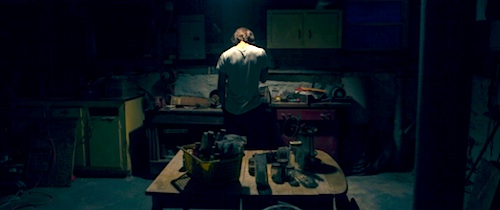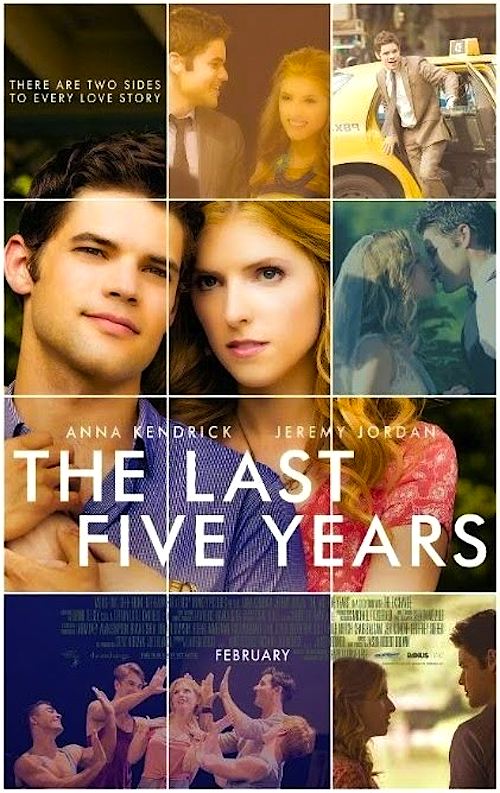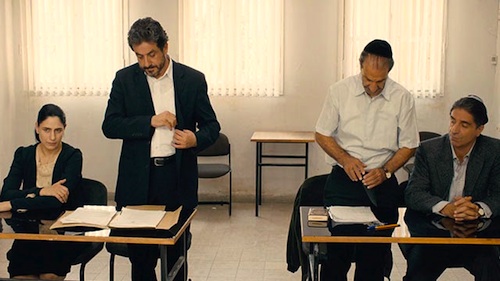By Joe Bendel. What was an ancient civilization doing in the northern most regions of the Yukon’s Taiga Cordillera? Not much, at least not anymore. However, their stag-headed demigod might be up to some bad supernatural business in writer-director Nick Szostakiwskyj’s Black Mountain Side, which screens during the 2015 SF Indie Fest.
Although there are indigenous peoples in the Taiga Ecozone, by the time you reach the research station commanded by Myles Jensen, civilization thins out to pretty much to nothing. That is why the discovery of a Mesoamerican monument (or rather the visible tip of it) is such a significant surprise. The more academically respectable Peter Olsen is flown out to inspect it, unfortunately for him. He agrees, it is the darnedest thing, but it is not Mesoamerican.
Soon thereafter, the camp cat is found murdered at the excavation site, like a sacrifice at an altar. The next day, the outpost’s indigenous workers have all taken to the wind. With the weather getting even worse, the men are cut off from the world, struggling with each other’s increasingly violent, delusional behavior, diagnosed by the camp doctor as the result of exposure to an ancient but still potent virus.
Frankly, Szostakiwskyj’s surprisingly subtle script allows for the possible the bedlam might just as easily be the product of an all-too human psychosis brought on by stress and isolation as it is the result of a killer virus or the work of a malevolent entity. We can probably safely assume all three are a factor in the ensuing chaos.

Despite the severed body parts, Mountain is remarkably restrained for a horror film. Much like the original Howard Hawks produced The Thing, it features some unusually smart dialogue, particularly the speculation regarding the vanished civilization that left behind the ominous artifact (someone should have thrown a bone up in the air in front of it to see if it would turn into a space station). This film was not exactly a bumper crop of opportunities for actresses, but Szostakiwskyj deals pretty forthrightly with both sides of masculinity—the cerebral reserve and the arm-chopping violence.
Arguably, Mountain is a little too quiet, soaking up atmosphere when it should be getting somewhere quicker. The primary characters are also a bit tricky to differentiate from one another. Mostly, they are smart, intense, and liberally appointed with facial hair. Still, Michael Dickson makes all of Olsen’s anthropological speculation sound cool.
While its horror movie mechanics are a tad off, the creepy vibe and distinct sense of place elevate Mountain above most indie genre outings. It the sort of film that makes viewers feel chilly in the moment and inspires gratitude as they live in major metropolitan centers after their screenings. Recommended for fans of naturalistic horror films, Black Mountain Side screens this Sunday (2/15), and the following Wednesday (2/18), as part of this year’s SF Indie Fest.
LFM GRADE: B
Posted on February 9th, 2015 at 8:59pm.





